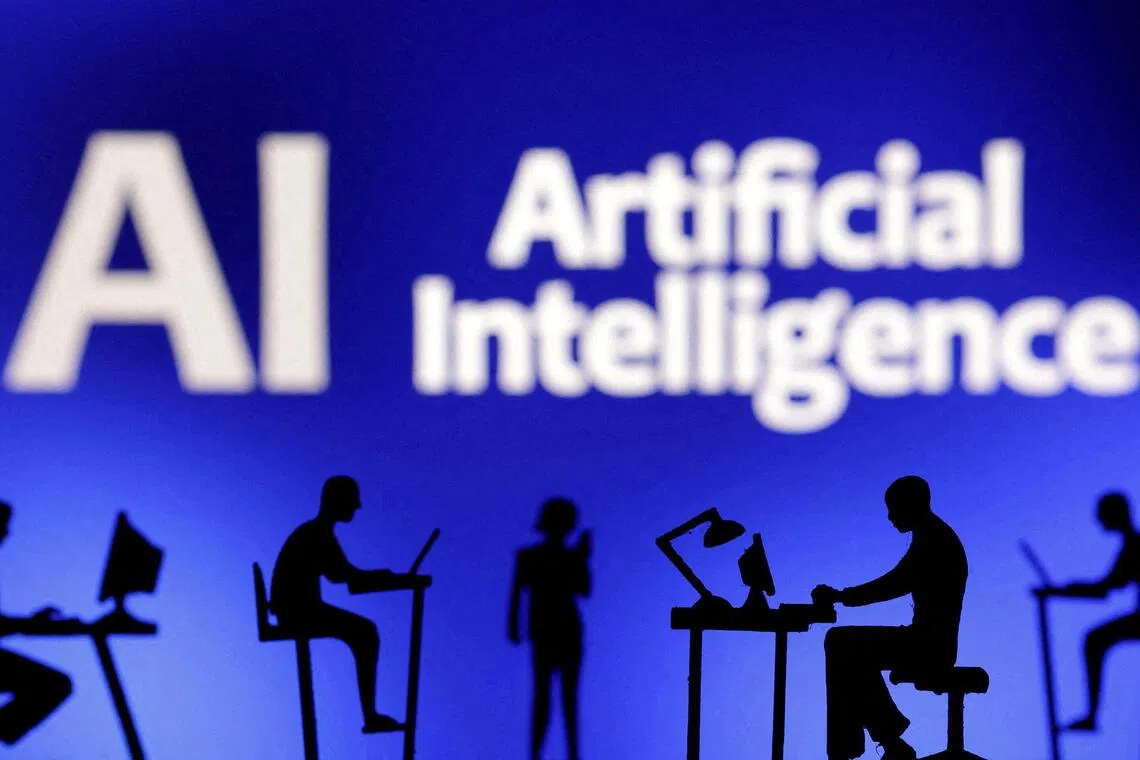Musk has erection in right arm? AI not reliable news source: European media study
Sign up now: Get ST's newsletters delivered to your inbox

Mistakes made by chatbots include confusing news with parody, getting dates wrong or simply inventing events.
PHOTO: REUTERS
PARIS – Artificial intelligence (AI) assistants such as ChatGPT made errors about half the time when asked about news events, according to a vast study by European public broadcasters released on Oct 22.
The mistakes included confusing news with parody, getting dates wrong or simply inventing events.
The report by the European Broadcasting Union (EBU) looked at four widely used assistants: OpenAI’s ChatGPT, Microsoft’s Copilot, Google’s Gemini and Perplexity.
Overall, 45 per cent of all AI answers had “at least one significant issue”, regardless of language or country of origin, the report said.
One out of every five answers “contained major accuracy issues, including hallucinated details and outdated information”.
Of the four assistants, “Gemini performed worst with significant issues in 76 per cent of responses, more than double the other assistants, largely due to its poor sourcing performance”.
Between late May and early June, 22 public media outlets from 18 mostly European countries posed the same news questions to the AI assistants.
Outdated information was one of the most common issues in the 3,000 responses.
When asked “Who is the Pope?”, ChatGPT told Finnish public broadcaster Yle, and Copilot and Gemini told Dutch media outlets NOS and NPO, that it was “Francis”, even though at the time he was already dead
Asked by French radio station Radio France about billionaire Elon Musk’s alleged Nazi salute
“AI assistants are still not a reliable way to access and consume news,” said Mr Jean Philip De Tender, deputy director-general at the EBU, and Mr Pete Archer, head of AI at the BBC.
Despite these deficiencies, AI assistants are increasingly being used to get information, particularly by young people.
According to a global report published in June by Reuters Institute, 15 per cent of people under 25 use them every week to get news summaries. AFP


